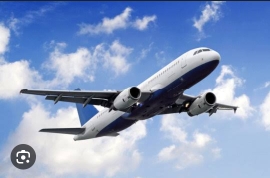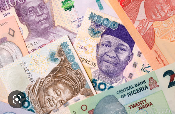
Travel agencies kick against sale of hard currencies in Nigeria
CITIZENS COMPASS— The National Association of Nigerian Travel Agencies (NANTA), has expressed optimism that the dollarisation of the aviation sector will soon become a thing of the past.
NANTA President, Mr. Yinka Folami, said this at a radio programme in Lagos State.
According to him, the era of selling airline tickets in foreign currency is gradually coming to an end as the government works to address the underlying challenges in the sector.
Speaking on Creative Nigeria, a cultural and tourism programme aired on Mainland 98.3 FM, Lagos, and hosted by the award-winning journalist, Frank Meke, alongside Bunmi Bade-Adeniji. Mr. Folami reaffirmed that “there is no need to sell in foreign currency again,” describing the practice as an outdated system that will soon fade out in Nigeria’s aviation industry.
He urged Nigerians to support Air Peace as a national pride, emphasizing that the outlook for the nation’s aviation industry remains stable and promising.
During the engaging discussion, the NANTA president described cross-border trading in foreign currency as “a crime against the economy.” He praised Air Peace for “taking the bull by the horns” by launching its London route, calling it a patriotic responsibility for Nigerians to support and pray for the airline’s success and sustainability.
“Those of us in the aviation space understand that until we have a strong Nigerian carrier to stand in the gap, these issues will persist. I am happy to inform Nigerians that the government is squarely addressing the issue of ticket sales in foreign currency, and that is the latest update on the matter,” Folami said.
He commended the federal government’s ongoing reforms and the **Central Bank of Nigeria (CBN) for stabilizing the naira and promoting transparency in the foreign exchange market.
“The outlook for Nigeria is stable, and even the World Bank and International Monetary Fund (IMF) have commended the economic policies of this government. The gap between the official and parallel market rates is closing, liquidity has improved, and there is more transparency in the process,” he added.
Folami emphasized the need for stakeholders in the aviation and travel sectors to complement government efforts through proactive collaboration.
“We must congratulate the government, but the best way to do that is for us — industry players — to give life to whatever the government is doing. The government will not come into our sector to make the change; it is our responsibility to build on the progress already made,” he said.
The NANTA president noted that the association has over 3,500 members, with 70% of them being youths. He maintained that government reforms at the micro level can translate into tangible benefits for Nigerians if more citizens are encouraged to patronize local travel agencies and airlines.
However, he lamented that the sale of tickets in foreign currency still excludes many NANTA-certified members from direct trade with airlines despite their international qualifications.
In his contribution, Mr. Yusuf Babalola, a journalist with expertise in the aviation industry, pointed out that the challenge has always been the implementation of government policies. He said despite reforms, several foreign airlines continue to charge in dollars — a practice the government is aware of.
“No airline is being owed; they make their money and repatriate it. Yet, they keep doing what they’re doing,” Babalola said, sharing an example from his experience in Japan. “In Japan, it is against the law to spend foreign currency. From entry, you must exchange your money for Yen. It’s even considered a sin to spend the dollar in Japan. We need political will to enforce similar policies here.”
Another journalist, Chinelo Agina-Obogo**, cited Section 20(5) of the CBN Act of 2007, which makes it an offence for any individual or organization to accept the dollar as a means of payment within Nigeria. She emphasized that enforcement remains the key issue for relevant government agencies.
Also speaking, Mr. Chinedu Eze commended Air Peace for its Lagos–Heathrow route, describing it as a major milestone that showcases Nigerian culture and tourism. He, however, criticized the inconsistency of government policies, which sometimes enable foreign airlines to flout local laws.
“What makes Air Peace’s London operations special is the government’s full support. Without that, local airlines cannot attain such heights. However, some foreign airlines use public relations tactics to sway narratives in their favour. The government must remain firm in supporting local carriers,” Eze said.
Program host, Frank Meke, also praised Air Peace for its resilience, calling on stakeholders to uphold fairness and transparency in the aviation sector.
“Until we begin to name names and correct the wrongs, we will keep going in circles. Many travel agencies are frustrated by this dollarisation issue, but with Air Peace in the mix, there’s hope. If the foreign airlines can’t play by our rules, they should ship out,” Meke stated.
He noted that the policy reform that enabled Air Peace to secure its London route was hard-won, given the international politics involved. Folami, in his closing remarks, urged airlines to improve their technology systems and review the harsh **Airline Debit Memos (ADMs)** and penalties imposed on agents, describing them as “outrageous and counterproductive.”







